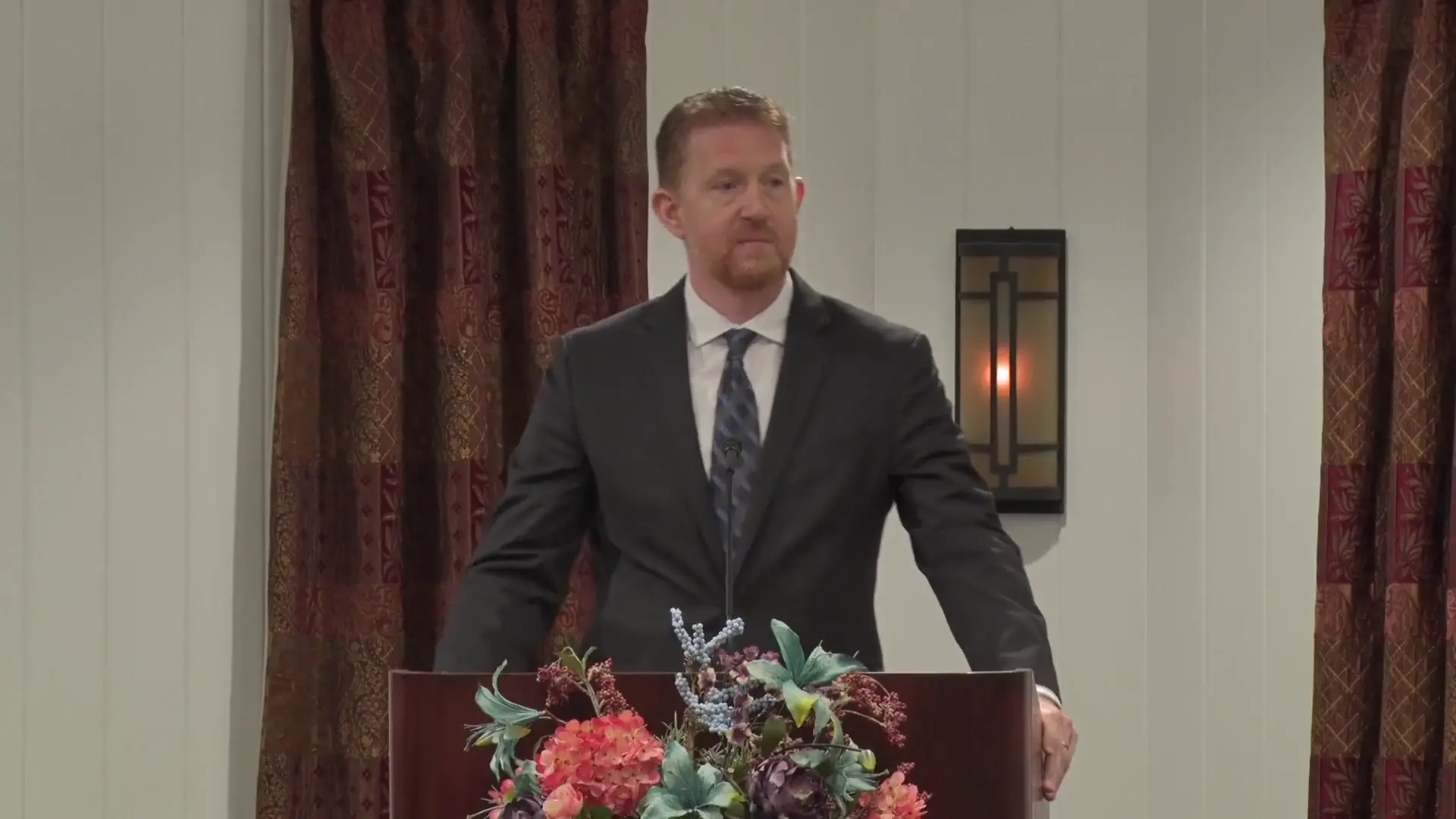Filter by Categories
Serving Others
Sermonette by James BeaubelleNeither the toxic worldview of evolution nor that espoused by mainstream Christendom fails to answer why we exist. We have a mandate to serve both God and man.
Each Other (Part Three)
CGG Weekly by David C. GrabbeWe should assemble with the rest of the Body where possible, and the reason the apostle gives is for exhorting others. We cannot exhort if we have withdrawn.
Each Other (Part Two)
CGG Weekly by David C. GrabbeAn individual can teach and admonish only if he is in fellowship with others. God's intention that we be connected to the rest of the Body is seen everywhere.
Have Mercy
Sermonette by Hunter D. SwansonWhen we become fixated on past resentment, we will never find opportunities to display mercy, enabling a repentant brother to move forward.
The Widow and the Fatherless (Part Four)
CGG Weekly by Mike FordWhat are some more tangible ways to help the widow, the fatherless, and the stranger? These points would help anyone, but keep in mind those we are focusing on.

Go and Do Likewise
Sermon by Bill OnisickWithout the gift of God's Holy Spirit, it is impossible to understand the kind of love which Christ commanded of His disciples.
Be a Good Neighbor
CGG Weekly by John ReissSome have wondered, 'How far should we go in helping someone who is not in the church of God?' How does the Bible respond to this question?
Privilege, Responsibility, and Judgment
Sermonette by John W. Ritenbaugh (1932-2023)Our welfare programs have scriptural principles as their general inspiration, but they have been abused, encouraging dependency which God never intended.

Carrying Water for Jesus Christ
Feast of Tabernacles Sermon by Ted E. BowlingThe parable of the Good Samaritan depicts a way of life God intends all His called-out Saints to follow.

The Third Tithe Blessing
Sermon by David C. GrabbeGod's people were obligated to declare before God that they had faithfully distributed the tithe. The blessing was applied nationally.
The Widow and the Fatherless
Sermon by Mike FordPure religion, according to James, takes care of vulnerable people — the widows, fatherless, and strangers. This echoes the words of the prophets.
A Lesson in Sportsmanship
Sermonette by Ted E. BowlingThe 'Pierre De Coubertin Medal' is given out for sportsmanship, honoring generous behavior toward competing athletes—much harder to win than a gold medal.
Themes of Ruth (Part Four): Kindness and Faith
Sermon by Richard T. RitenbaughBoth Ruth and Naomi demonstrated covenant loyalty in this marriages long after the death of their spouses. Ruth faithfully continued to serve her mother-in-law.
The Sacrifices of Leviticus (Part 4)
Sermon by John W. RitenbaughThe meal offering represents the second Great Commandment, love toward fellow man. Our service to others requires much grinding self-sacrifice and surrender.
Perfect, Gentle Courtesy (Part 3)
Sermon by Martin G. CollinsParents are obligated to teach God's laws to their children. According to Emily Post, good manners are to the family what good morals are to society.

The Merciful
Sermon by Richard T. RitenbaughThe harsh religion of the Pharisees was unfeeling, placing more attention on rituals and man-made laws, and had turned their super-righteousness into sin.
A City on a Hill (Part Two)
CGG Weekly by John ReissWe may never be featured in a museum, receive a Medal of Honor, or be the subject of a movie, but we can still be outstanding examples with our own lives.
The Widow and the Fatherless (Part Two)
CGG Weekly by Mike FordOur God has called and chosen us to serve Him and others with humility, being especially sensitive to the needs of those who are socially and economically limited, such as widows and the fatherless. We are to provide help when we see a genuine need among them, as they are often the weakest among us and in most cases unable to work. God sets the example, as David writes in Psalm 68:5, that He is a father to the fatherless and a defender of widows in His holy habitation. God Himself declares in Jeremiah 49:11 to leave the fatherless children to Him for preservation and to let widows trust in Him, showing His care for their rights and welfare. In Jeremiah 7:1-11, God speaks through His prophet, commanding the people of Judah to change their ways and stop taking advantage of orphans and widows, promising safety and a long life in their land if they reform. God's ordering of priorities places the care of widows and the fatherless near the top of the list of actions needed to return to a proper relationship with Him, emphasizing the importance of protecting and looking out for the weak among us.
A Survey of God's Gifts to Us
Sermon by Martin G. CollinsThe apostle Paul inventories spiritual gifts that God has given for the edification of the church, including ministry of the word and practical service.
Sin (Part Two)
Sermon by John W. RitenbaughThoughts, words, or behaviors not in alignment with the mind of God are also violations against God's law. Foolishness should never be part of our conduct.
The Behavior of Onesiphorus
Sermonette by Jared M. EllisOnesiphorus stands out for his unwavering loyalty and selfless support of Paul during persecution. His actions, not his words, spoke volumes.
Breakfast by the Sea (Part Two)
CGG Weekly by David C. GrabbeJesus twice asks Peter if he has agape love, and both times Peter can only respond that he has tremendous personal affection — he was lacking agape love.